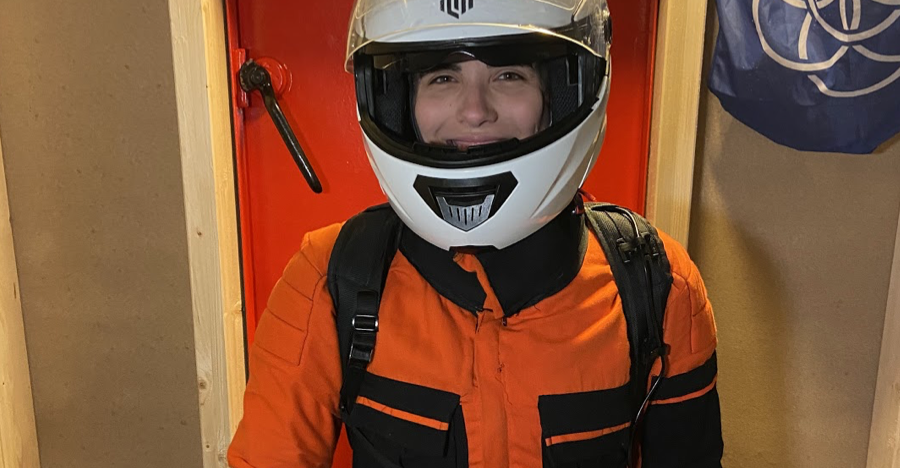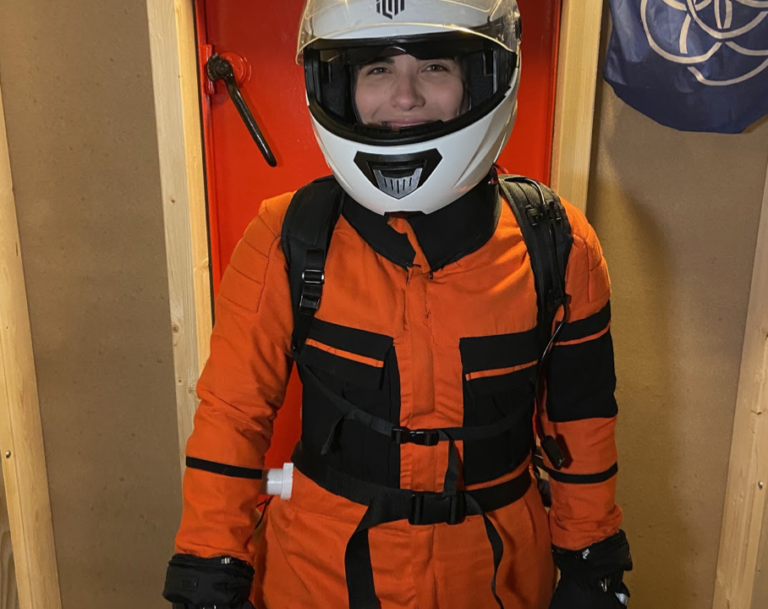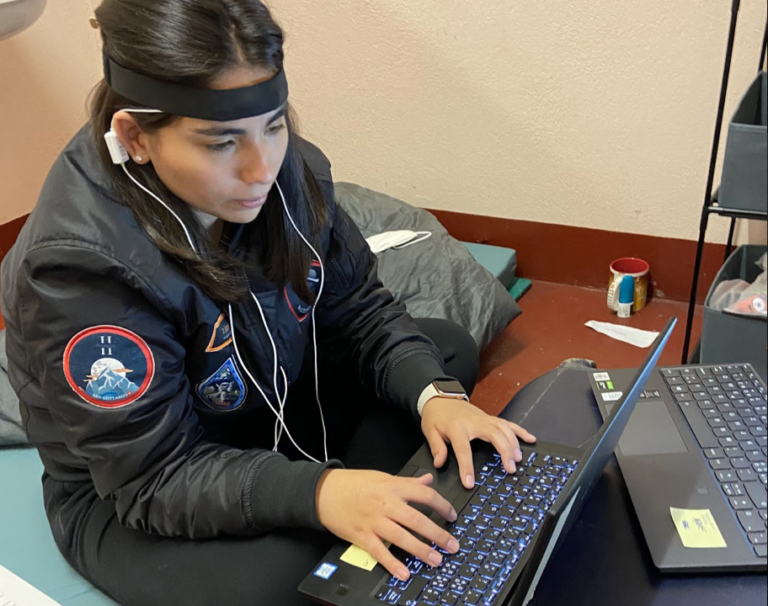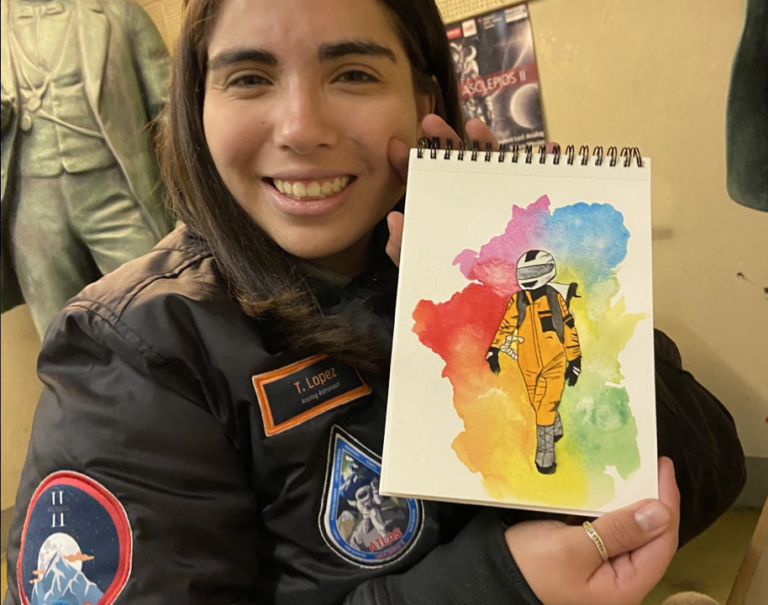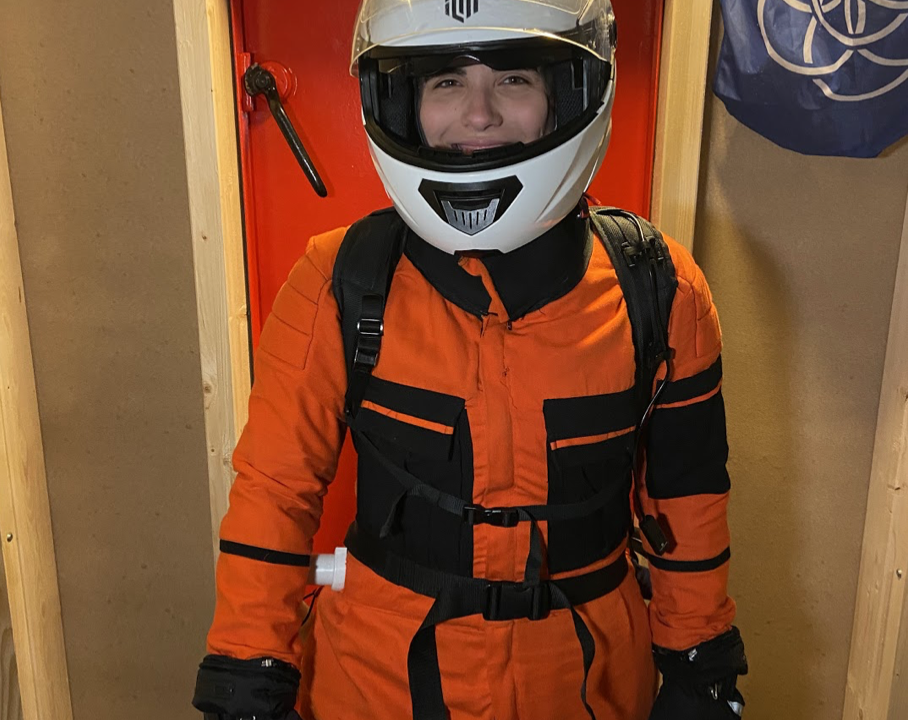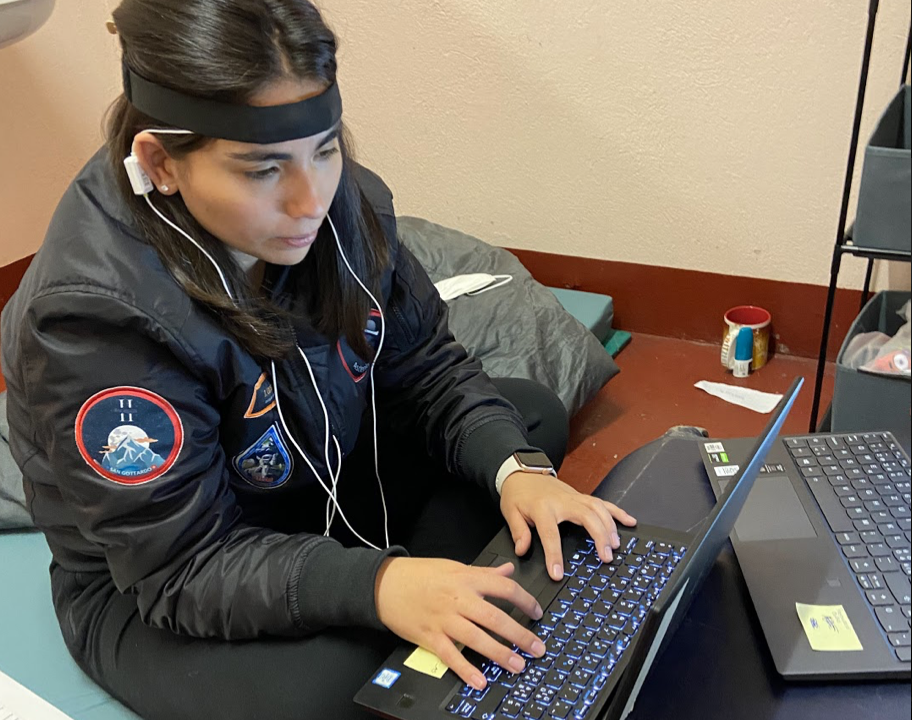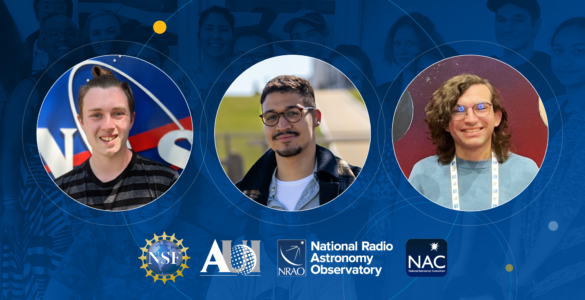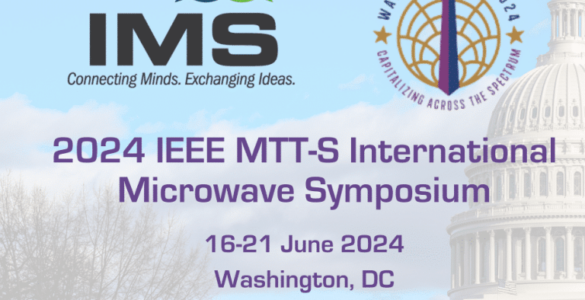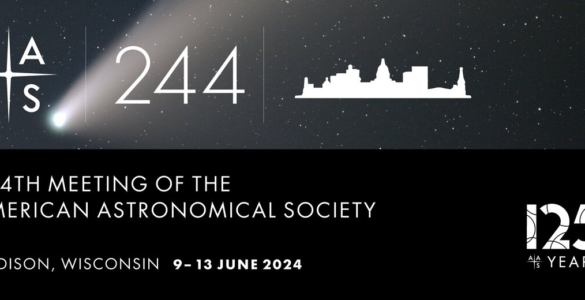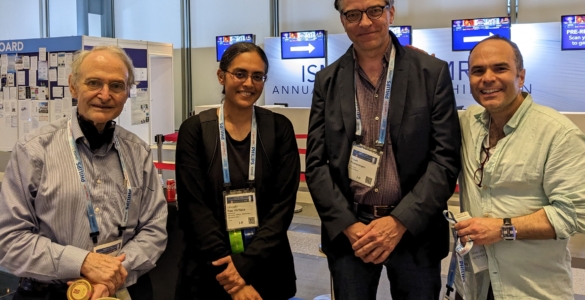Tatiana López is an aerospace engineering student at the University of Concepción in Chile, and a certified mentor for PROVOCA, an AUI/NRAO program that promotes and supports young women pursuing STEM vocations in Chile. She is also the only Latin American woman that participated in the Asclepios II Mission, a Switzerland-based analog space program designed by and for students that required two years of training followed by 15 days in an underground Moon simulation at the former Gotthard Mountain military fortress located in the Swiss Alps.
Still in Europe, preparing for her last couple of weeks of exams in Munich, she is slowly returning to her “back on Earth” routines, not a trivial thing to do after two weeks locked up with six young analog astronauts. Totally deprived of natural light for days, colors and luminosity were too intense for her eyes, so she is progressively removing her sunglasses.
Tatiana explains that one of the things during the mission that affected her the most was losing track of time. “The lack of natural light, combined with tight schedules of daily activities, which varied each day, meant that you did not know exactly what time of day it was. Suddenly, it was bedtime, and you didn’t know if you were that tired. It felt like a nap and then back to work,” says Tatiana.
On top of that, there were time trial experiments that forced the crew to stay focused on their individual tasks, since a single mistake could mean an accident. In this regard, the PROVOCA Mentor points out, “Although we were evaluated and received prior psychiatric and psychological support to maintain mental health during confinement, there was a technique that helped us a lot. We were taught to concentrate on a “mental cross fixation” for a minute or so, and that allowed us to reduce oxygen consumption and resume activities more efficiently. Beyond that, and in extreme situations, there is nothing left but to turn off your brain and trust what you have learned.”
Her training as a PROVOCA Mentor also allowed her to strengthen skills that turned out to be key during the mission, such as active listening, teamwork, critical thinking, and leadership. As Mission Communications Officer for Asclepios II, Tatiana was responsible for accompanying her colleagues remotely on their field trips and providing them with support and calm in adverse situations. “I think that my preparation as a mentor allowed me to pay attention to all the elements involved when you communicate, both what is said and what is not, and thus interpret the emotions and attitudes my colleagues were facing in each experiment outside for 3 continuous hours, in the dark without light, with a lack of oxygen and wearing a suit that weighed between 15 to 22 pounds.”
One of the most extreme experiences she faced was the simulation of a solar flare that woke her up at three in the morning with a warning alarm. After the alarm was triggered, everyone had to run to protect their equipment and lock themselves in a security room, waiting for instructions from the mission control room. She also comments that on another occasion, a couple of crew members forgot to report before entering a “dead zone” outside, where there was no communication signal. This mistake was a learning opportunity that allowed them to correct the protocols for subsequent experiments of this kind.
For 15 days, they were fed with freeze-dried food, specially developed for astronauts. On one occasion, the team received a chicken pie and a jar of salmon as a gift, which they devoured. Another time, they were able to request soy sauce and a jar of chili, which made the eating experience a little more pleasant and varied. “When you’re pretending to be in space, you can’t bring salt or other granular foods, as they pose a choking hazard to the crew and a risk to the equipment. I really missed adding a little flavor to the food. Upon my return to Chile, my family awaits me with a delicious barbecue at home.”
During her spare time, Tatiana enjoyed drawing and painting in watercolor, an activity that helped her relax and manage anxiety, and incidentally decorated the walls of the ship, something her colleagues were grateful for.
On a daily basis, she had to report to the control base on an individual blog, including not only what she was doing minute by minute, like the type of diet she was eating and her physical training, but also the emotions she was experiencing. “There were reports after each individual and group experiment, and those will allow scientists to understand how men and women respond physically, mentally, and emotionally to various situations and environmental and physical conditions; it’s a very interesting exercise for planning a future Lunar mission.”
Now that the mission is over, Tatiana confesses that she has mixed feelings, as she longs to be reunited with her family in Concepción but she regrets leaving this family of friends with whom she has shared the last two years of training. She also takes a moment to evaluate her participation in Asclepios II. “From this experience, I will treasure many technical, scientific, and behavioral learnings, as well as friendships for the rest of my life. Moreover, I know that I will continue looking for new opportunities that bring me closer to space, that fascinating place that attracted me as a child and I am still in love with.”
With permission, this piece has been translated to and adapted for English from an original AUI/NRAO Chile news piece. Original Spanish by Andrea Riquelme.


